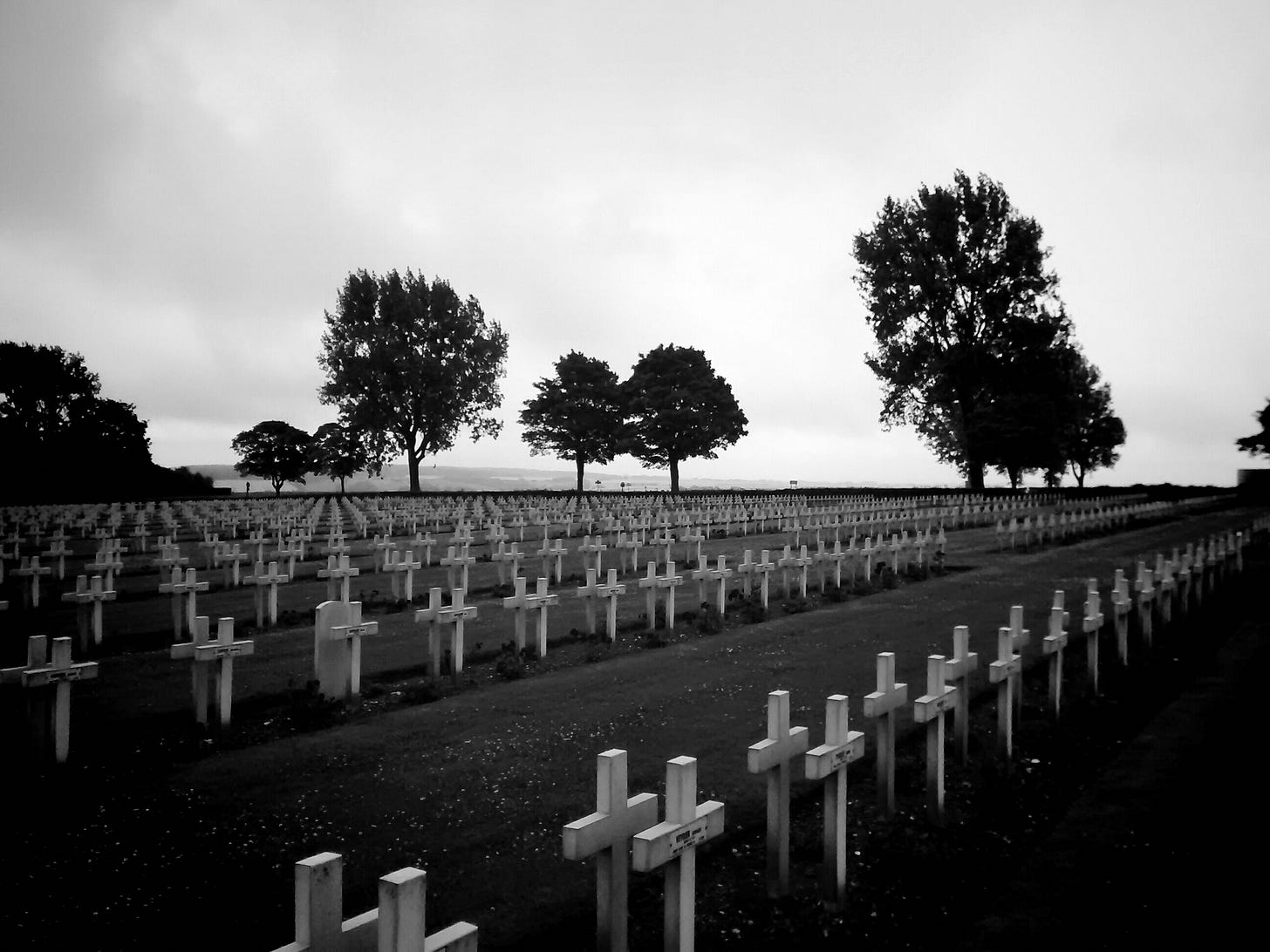Beautiful, White, French Bread
"I really disliked the taste, and did not finish eating my piece."
Some good news: We are mailing books to the United States again.
The shipping companies we use now have systems in place that allow us to send books to American customers without incurring additional fees.
Canadian books are exempt from tariffs under the Canada-United States-Mexico Agreement (CUSMA), so there will be no extra charges at delivery if you buy from www.oboluspress.com
The German typographer Rudolf Koch (1876–1934) wrote a memoir about his experiences during the First World War. I am translating it into English, and sharing excerpts from my first draft as I go. Previous posts are here.
Near Rhiems, April 1917
Now we entered the communication trench. It was about 9 o’clock in the morning. The French had been pushed back in hand-to-hand combat the day before, and we soon saw the gruesome traces of the fight. We shuddered as we hurried past a spot where there had been a direct hit on one of our machine guns; no one who has seen such a thing should describe it to others. The only lesson to be drawn from such sights is that one’s eyes learn to bear the most dreadful scenes, and this is something that cannot be conveyed when talking about it afterwards. Doing so only arouses horror, a horror that is much greater in the uncertainty and darkness of one’s imagination than it is in the bright light of day.
We then encountered the first French corpses. Neither I nor anyone else had ever seen such terribly mutilated bodies and I still remember that, when our section needed to come to a halt for a moment, a call came from the men in the rear saying that they wanted to move farther up, since they could not bear the sight of it — and these were soldiers who had fought at Verdun. The dead were all French, white, and they were wearing brand new uniforms, so there was no doubt that they had only arrived at the front a short time ago.
During the night the bodies had been moved a little to one side, after rigor mortis had already set in. With their pallid limbs they stood out in the wind like figures in a wax museum.
It was a path full of horrors but, despite how gruesome it was, I also felt a certain grotesque magnificence in Nature, even in the appalling violation of its works.
We stopped once again. The men went through the backpacks of the dead and found biscuits, chocolate, sardines, and bread — beautiful, white, French bread. One man found an entire loaf that was soaked with blood all along one side; after a brief moment of hesitation we sliced up it up and shared it out. But I really disliked the taste, and did not finish eating my piece.1
Koch’s unit was cut off from supply lines, and had gone without food for several days.


